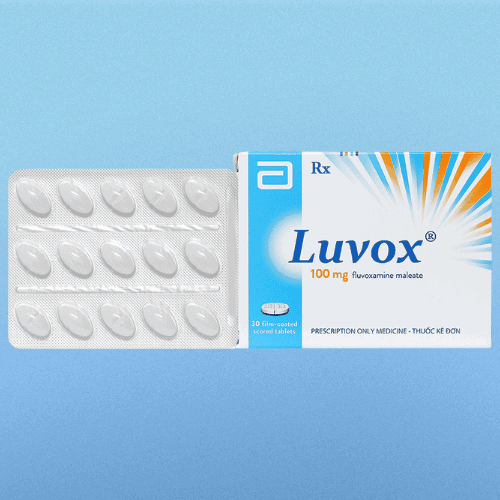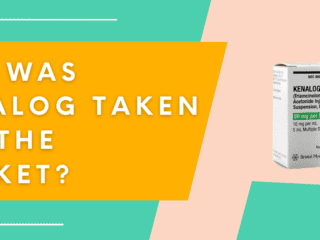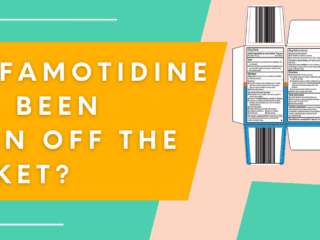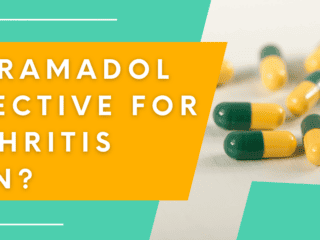Antidepressant medications like Luvox (fluvoxamine) are considered one of the most effective treatments for relieving symptoms of severe depression. However, it’s had a lot of controversy through the years, to the point of being discouraged from use and (temporarily) pulled out from the market.
Many have wondered, “Why was Luvox taken off the market in the first place?” This article will break down the facts about what really happened to this medication and the controversies related to it.
The History of Luvox

What is Luvox?
Fluvoxamine (sold under Luvox) is an oral antidepressant medication for treating obsessive-compulsive disorder (OCD). It’s considered a selective serotonin reuptake inhibitor (SSRI) and works by helping to restore serotonin balance in the brain. Serotonin maintains the mood, regulates sleep, promotes cognition, and controls sexual desire.
As an OCD medication, fluvoxamine helps decrease obsessions, persistent unwanted thoughts and urges to perform repeated tasks or compulsions such as constant hand-washing, counting, hoarding, and ordering/arranging, which could interfere with activities and overall quality of life.
Fluvoxamine also treats people with social anxiety disorder (SAD). Various studies show that medicating with fluvoxamine is effective in curbing/managing serious forms of social phobia. To an extent, fluvoxamine also proved to be effective in treating civilians and war veterans with PTSD from events during World War II and the Vietnam War.
The Temporary Withdrawal
In 2002, the US Food and Drug Administration (FDA) withdrew approval of the new drug applications for Luvox (fluvoxamine maleate) manufactured by Solvay regarding the new drug application’s chemistry, manufacturing, and control (CMC) section where inaccuracies were found. Following the FDA’s written request, LUVOX was temporarily withdrawn from sale.
While these findings raised concerns about the said product, they do not affect the safety or efficacy of fluvoxamine maleate in treating obsessive-compulsive disorder. The agency’s independent evaluation of relevant information found no data proving that Luvox was withdrawn for health hazards or effectiveness.
Eventually, in December 2007, the FDA would reissue an approval for Luvox in treating OCD and SAD.
Controversies Surrounding Luvox
The Columbine Massacre Connection
In the early 2000s, Luvox raised concerns as it was believed to be associated with violent behavior and suicidal thinking in children, teenagers, and young adults who take the medication.
The present Luvox CR contains a black box warning, the FDA’s most stringent warning for drugs and medical devices on the market known to carry serious and often deadly side effects.
Besides the inconsistencies in its CMC section, Luvox was removed from the US market in 2002 after press coverage related to the infamous Columbine Massacre in 1999. One of the shooters, Eric Harris, was said to frequently take Luvox and was rejected by the military because of his usage. An autopsy of his body showed that he had Luvox in his system during the murders.
While scientific evidence showed no connection linking fluvoxamine medication to behavior changes involving hostile outbursts, the Colorado Board of Education passed a resolution urging teachers to use discipline and instruction to overcome problem behavior in the classroom rather than encouraging parents to seek drug treatment for their children.
Other Reported Side Effects
Fluvoxamine’s commonly reported side effects include:
- Profuse sweating
- Nausea
- Vomiting
- Drowsiness
- Dizziness
- Loss of appetite
- Trouble sleeping
- Weakness
- Change in sex drive or performance
- Tremors/shaking
At times, fluvoxamine can result in numerous serious side effects which require immediate medical attention. This is why Luvox CR has a black box warning mandated by the US FDA.
- Allergic reactions (skin rash, itching, hives, swelling of the face, lips, tongue, or on the throat)
- Diarrhea
- Dark or bloody stools
- Vomiting blood or brown material
- Red or dark brown urine
- Small red or purple spots on the skin
- Unusual bruising or bleeding
- High fever
- Stiff muscles
- Fast or irregular heartbeats
- Low sodium levelâmuscle weakness, fatigue, dizziness, headache, confusion
- Prolonged or painful erection
- Seizures
- High fever
- Seizures
- Confusion
- Irritability and mood problems
- Thoughts of suicide or self-harm and increased feelings of depression
Also, do not take your medication more often than directed. Do not stop taking this medication suddenly except upon the advice of your care team; otherwise, stopping this medication too quickly may cause serious side effects or worsen your condition.
Store at room temperature between 15 and 30 degrees C (59 and 86 degrees F) and away from humid places. Keep the container tightly closed and always keep it out of the reach of children.
Dispose of all unused medication immediately once it goes beyond the expiration date.
Luvox in Recent Times
Potential Use in COVID-19 Treatment
Recent evidence has alluded to the potential therapeutic role of fluvoxamine for COVID-19. In 2020, one clinical trial found that treatment with fluvoxamine with a dosage of 100 mg twice daily for 10 days among high-risk outpatients with early diagnosed COVID-19 helped reduce the need for hospitalization. Additional studies showed that fluvoxamine reduced the risk of clinical deterioration in COVID patients.
Despite its potential in treating the effects of COVID-19, the efficacy of fluvoxamine for COVID-19 patients remains controversial. The FDA has determined that the data presented was insufficient to prove that fluvoxamine can effectively treat nonhospitalized patients with COVID-19 to prevent progression to severe disease and hospitalization.
As a result, the FDA declined the authorization request for fluvoxamine as a COVID-19 treatment option.
Current Status
Currently, fluvoxamine is available as Luvox CR capsules for OCD and SA patients. The capsules are available in doses of 100 mg and 150 mg strengths for oral administration.
Apart from its main ingredient, fluvoxamine maleate, each capsule contains various inactive ingredients such as talc, sugar spheres, ammonio methacrylate copolymer type B, dibutyl sebacate, red iron oxide, FD&C Blue No. 2, titanium dioxide, gelatin (porcine- or bovine-derived), and Opacode Grey. LUVOX CR Capsules are gluten-free.
Given its current black box warning, the FDA strongly recommends that all patients being treated with antidepressants for any indication should be monitored appropriately and observed closely for clinical worsening, suicidal tendencies, and unusual changes in behavior, especially during the start of a course of drug therapy or at times of dosage changes.
Apart from fluvoxamine, other examples of SSRI antidepressants include:
- Citalopram (Cipramil)
- Dapoxetine (Priligy)
- Escitalopram (Cipralex)
- Fluoxetine (Prozac or Oxactin)
- Paroxetine (Seroxat)
- Sertraline (Lustral)
- Vortioxetine (Brintellix)
FAQ Section
Was Luvox banned in the USA?
Luvox was temporarily withdrawn in May 2002 upon the request of the US FDA due to insufficient data on its supposed benefits but was eventually re-approved for us in December of 2007 for OCD treatment.
Why was Luvox linked to the Columbine Massacre?
Concerns arose about its association with violent behavior and suicidal thoughts in young individuals after it was found that Eric Harris, one of the perpetrators of the Columbine massacre, was found to have been an active user of fluvoxamine at the time of the shooting.Â
Are there any severe side effects associated with Luvox?
Many serious side effects, such as allergic reactions, bloody stools, muscle problems, behavioral changes, and suicidal tendencies among others, require immediate medical attention.
Is Luvox being used as a treatment for COVID-19?
Even though some studies found it as a potential treatment for COVID-19, the FDA remained unconvinced and has not authorized the use of fluvoxamine.
Is Luvox still available in the market?
Yes, Luvox is still available in the market as an OCD or SA medication. However, given its known serious side effects, it contains a black box warning, the FDA’s most stringent warning for drugs and medical devices on the market.
Conclusion
Luvox, despite the controversies surrounding its use and side effects, is still a recommendable and effective medication for people with obsessive-compulsive disorder and social anxiety to control symptoms. However, maximum prudence and strict compliance with prescription rules are mandatory to ensure safe medication.
Consult your healthcare provider or psychiatrist to know more about SSRIs and their effects on one’s physical and mental health.
Disclaimer: this article does not constitute or replace medical advice. If you have an emergency or a serious medical question, please contact a medical professional or call 911 immediately. To see our full medical disclaimer, visit our Terms of Use page.









